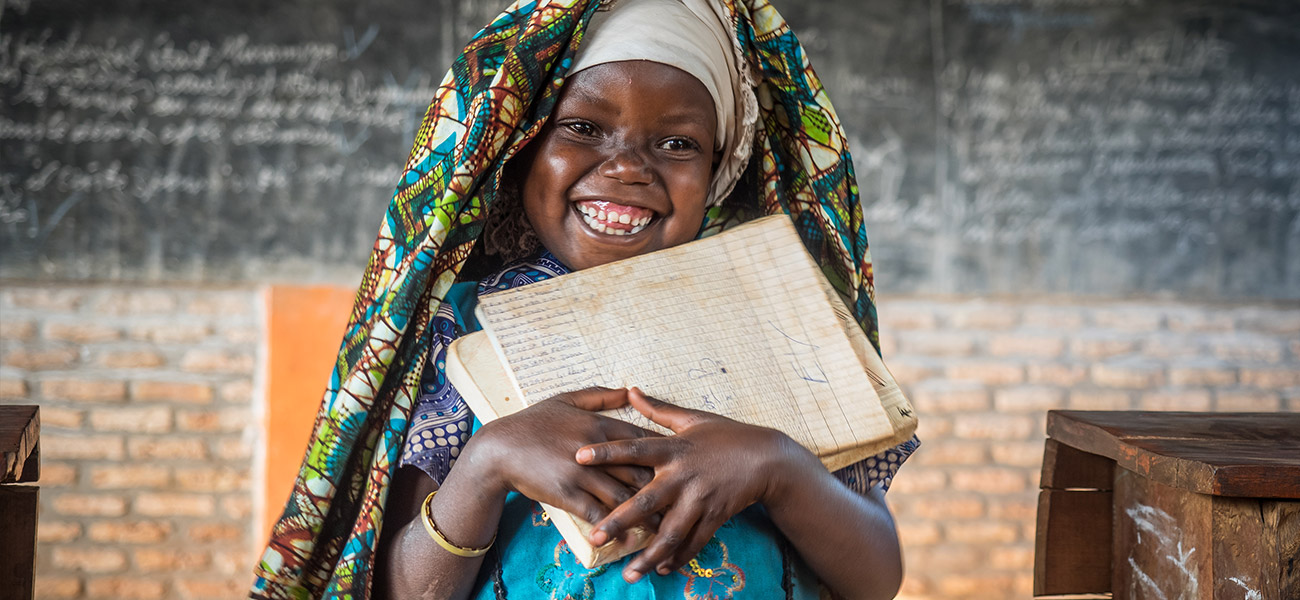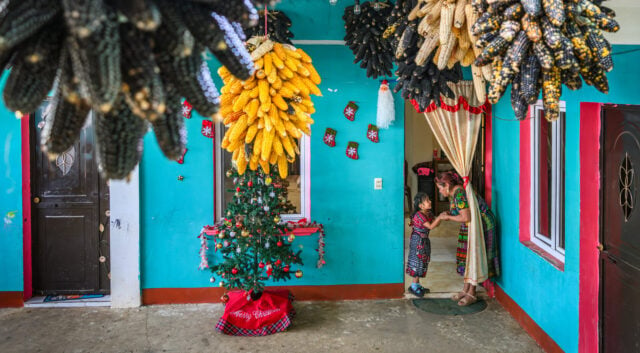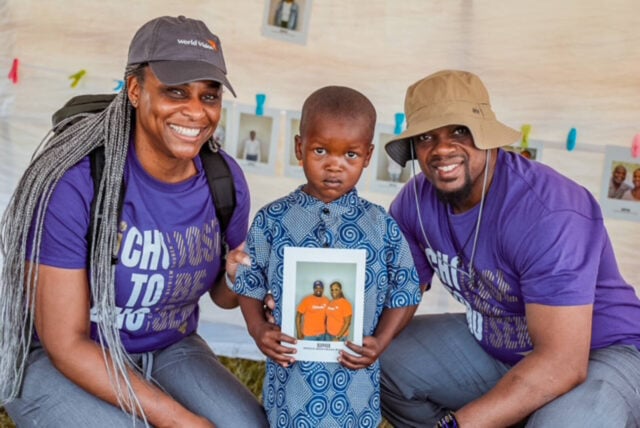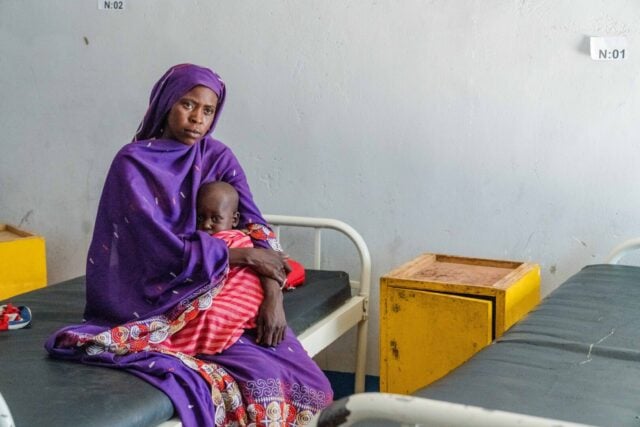Chania, 6, is the smiling girl you see on the cover of the 2015 World Vision Christmas Gift Catalog. Her family in Burundi doesn’t have an easy life — but Chania’s parents have big dreams for her.
Six-year-old Chania trots alongside her mother balancing a worn hoe on her shoulder. Even at her young age and size, she tills the ground in the small family plot with a practiced stroke, working the ground swiftly and knowingly.
“I help Mom to go to dig the lands,” she says shyly. “And if there is any other thing Mom is doing, I’m there to help.”
A life of fragile dreams
Chania, the youngest of seven children, is the child featured on the cover of the 2015 World Vision Christmas Gift Catalog. Behind her cherubic face and smile, Chania’s an observant and inquisitive girl.
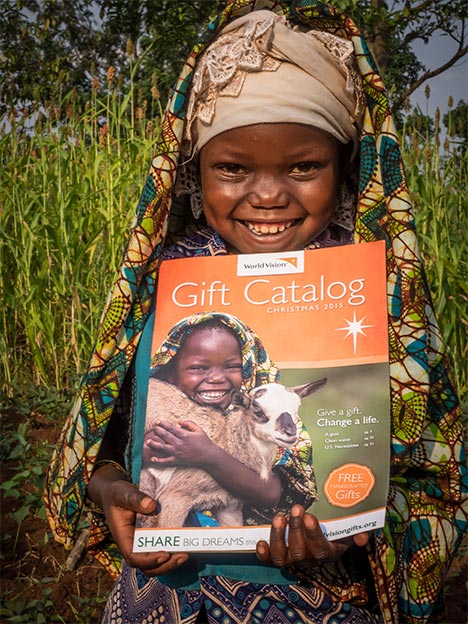
But this cover girl hardly leads a life of glamour. Instead, livestock, land, and animal manure used as fertilizer are hedges against hunger and malnutrition.
Still, Chania represents the hopes and dreams of millions of children around the world for whom clean water, an education, goats and chickens, medicine, and safety from exploitation are the real gifts that last.
Those gifts mean so much here in Burundi — proud land of the drum, red earth, and lush green valleys. Yet malnutrition and poverty take their hardest toll on children like Chania, whose hopes and dreams are the most fragile of all.
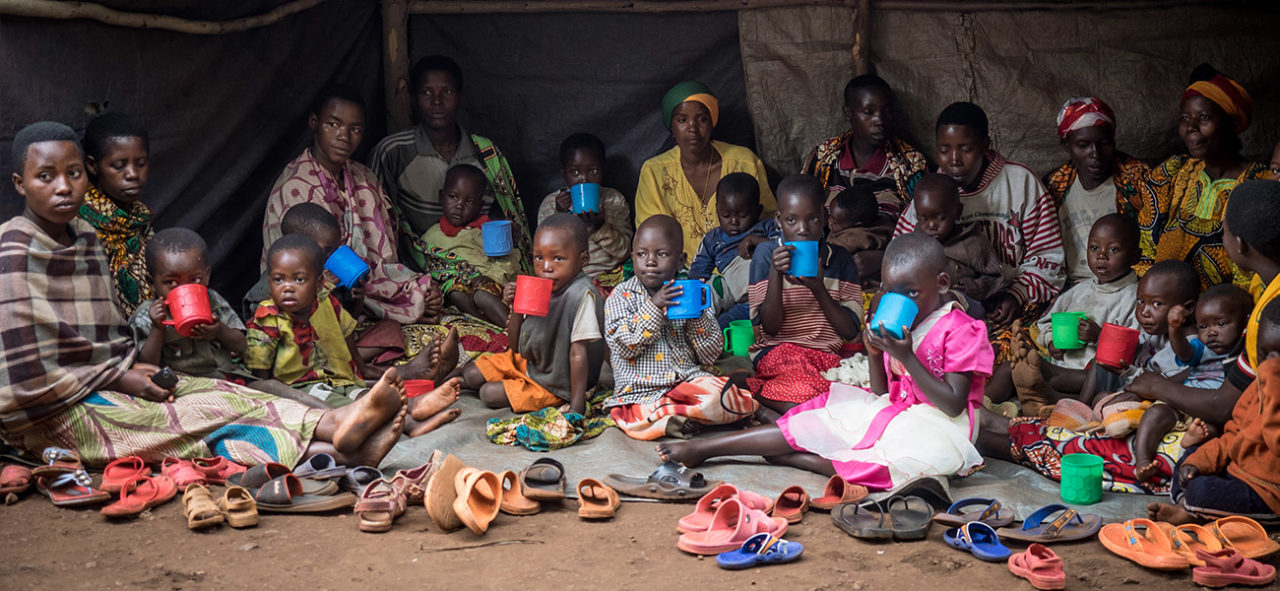
Growing up in one of the world’s poorest countries
An estimated 58% of children younger than 5 are stunted due to malnutrition. Burundi leads the 2014 Global Hunger Index with the highest number of children younger than 5 who are undernourished, underweight, or who die. One of the poorest countries in the world, more than 80% of 10 million Burundians live on $1.25 per day.
“Poverty is there,” says Helene Nibigira, 48, a community health nurse who surveys neighborhoods in Burundi’s northern Muyinga province to identify children with malnutrition. “We cannot ignore this. Poverty is something which burdens communities.”
Echoes of Burundi’s brutal and bloody past, most recently a 12-year civil war ending in 2005, are rising. The fragile bond of peace that has held for 10 years is being tested. Recent political unrest over national legislative and presidential elections led to violent protests and about 150,000 refugees fleeing to neighboring countries.
That is the backdrop for Chania, her sisters, and brothers — and the life they will navigate. Against this backdrop, World Vision’s Gift Catalog programs and generous donors strive to share their dreams and provide real gifts of the Christmas season.
Surviving in troubled times
Chania lives with her family on Masasu Hill, located in northeast Burundi, near the Rwanda and Tanzania borders.
Her father, Ramadhan Barengayabo, 49, describes himself as “a simple farmer” trying to raise his family above the margins of poverty.
Does he worry about the country’s political unrest?
“Well, I don’t worry much about this because seemingly these are the things which are happening between the politicians,” Ramadhan says. “As a farmer, a simple farmer in my household, well, I don’t feel I’m concerned much.”
Not that he’s unaffected. An estimated 300,000 Burundians died during the most recent civil war that has its roots in ethnic tensions between Hutu and Tutsi tribes, a division exacerbated and exploited during Belgian and German governments’ colonial-era rule.
“Some of my relatives were killed,” Ramadhan says of the civil war. “Especially people from my father. They were killed, but I thank God in my family, I was able to survive with the family.”
His concerns are more immediate, day-to-day, closer to home than the strife in Bujumbura, the nation’s capital: How will I provide for my family? Can I improve my house? How can my children prosper?
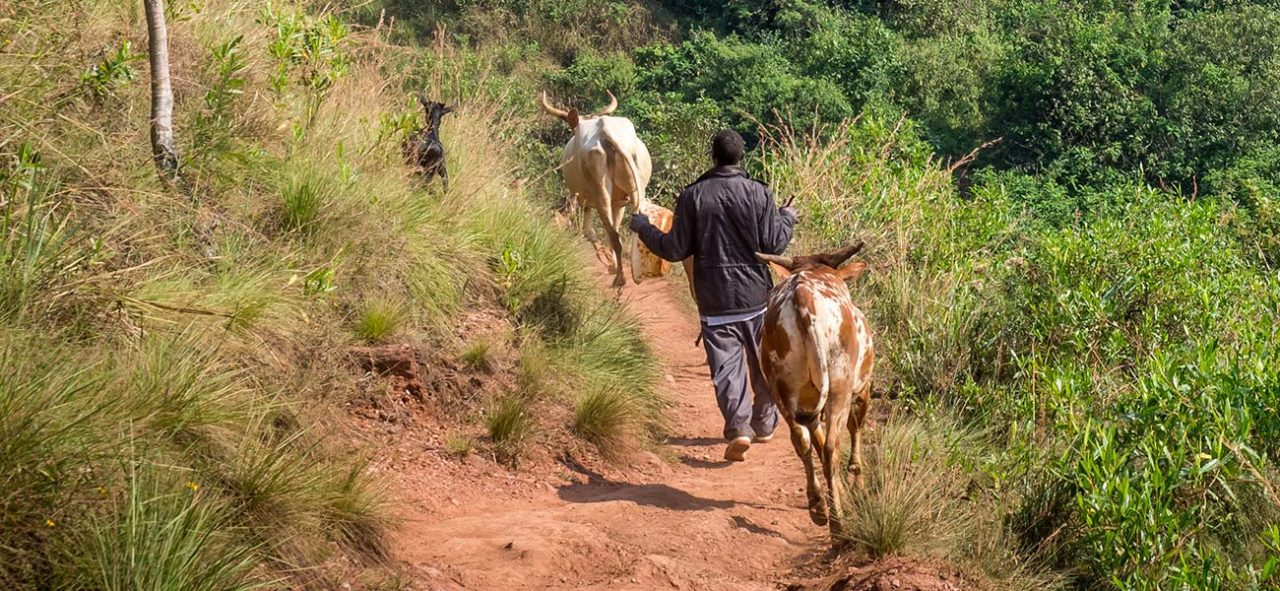
Manure: The most valuable gift a neighbor can share
On a typical day, Ramadhan trails after a small flock of goats and two cows ambling down the highway. Armed with a switch and plastic tub, he’s leading them off to graze in nearby fields.
The animals knowingly turn down a dirt path and break into a trot down a steep hillside. The winding dirt trail leads to the bottom of a verdant ravine and the stream where Masasu Hill residents also gather water.
Each day, Ramadhan wakes, takes the cows and then the goats out to graze. It’s hard work that requires constant cajoling and chasing to keep the animals from wandering.
But he doesn’t have a choice — the family’s survival is tied to their animals, but in counter-intuitive ways.
The animals’ manure and dung is used as fertilizer, Ramadhan says. Without the fertilizer, the crops they plant and need for survival don’t provide enough yield.
“Life here is connected much to livestock,” Ramadhan says, “because if you don’t have livestock to get fertilizers, it becomes very difficult for you to produce enough food and you’d be obliged to be begging, asking from people who have livestock.”
The land is poor, says Chania’s mother, Zena Mukeshimana, 46. But with fertilizer from manure, planting bean seeds produces an abundant yield.
“If you plant in the soil like this without fertilizer, you cannot expect to harvest,” Zena says.
Ramadhan and Zena don’t believe in giving handouts from their harvest, instead providing something more valuable: the ability for a neighbor to grow their own food.
“We are able to produce enough food, but also to get some extra manure to give to a neighbor,” Zena says. “You should be generous…if we didn’t give them manure they will come and ask for food. So I think it’s easier to give them manure so that they can use it themselves.”
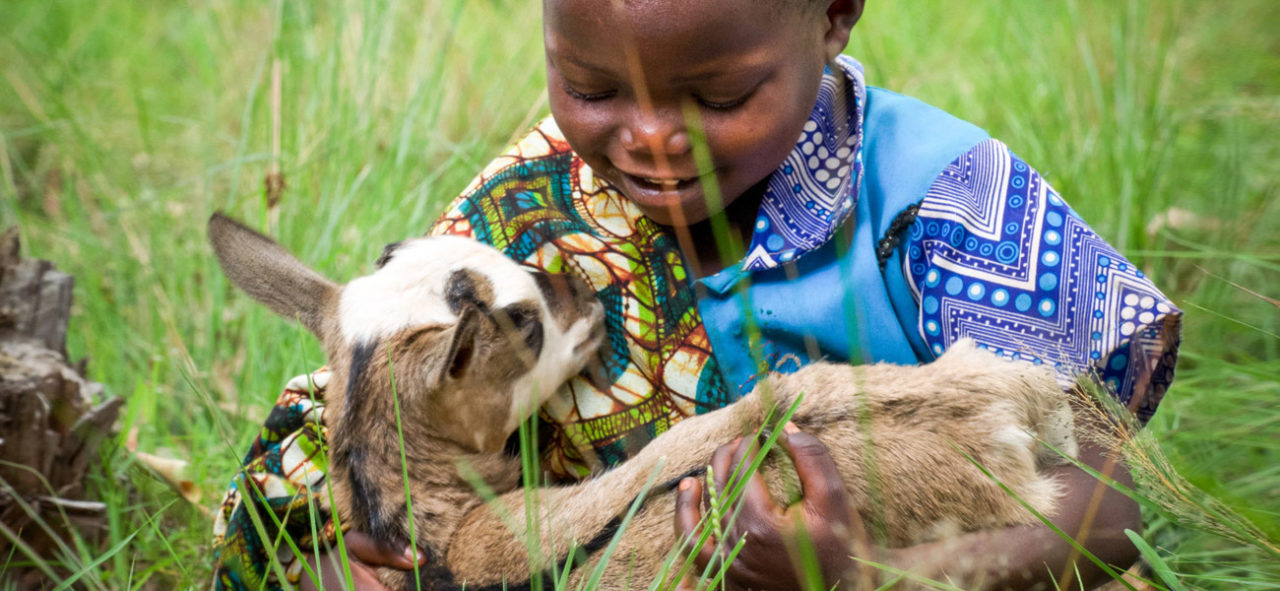
Goats: A hedge against hunger
Still, life is hard on Masasu Hill for Ramadhan and Zena and their family.
The children must trek down the dirt trail to collect water every day. They have to go early in the morning, when it’s cool and relatively uncrowded. And they have to watch out for snakes, Chania says.
A hailstorm destroyed the family’s banana trees so all they have to live on is beans, Zena says. To supplement their diet, she plans to work as a day laborer in the coffee plantations, earning enough to purchase goods at the local market.
According to the World Bank, nearly a billion people on the globe live on less than $1.25 per day. While that’s an improvement from 1.9 billion in 1990, for many this is still a life where a hailstorm or other unexpected event can make a difference in how well your family eats.
For Zena and Ramadhan, the goats, which generous donors provided to Masasu Hill families through the Gift Catalog, are a hedge against hunger, augmenting the resources family receive through child sponsorship.
Other seemingly simple gifts — such as sheets of tin for roofing provided through sponsorship or school supplies — can be vital links to stay above the poverty line.
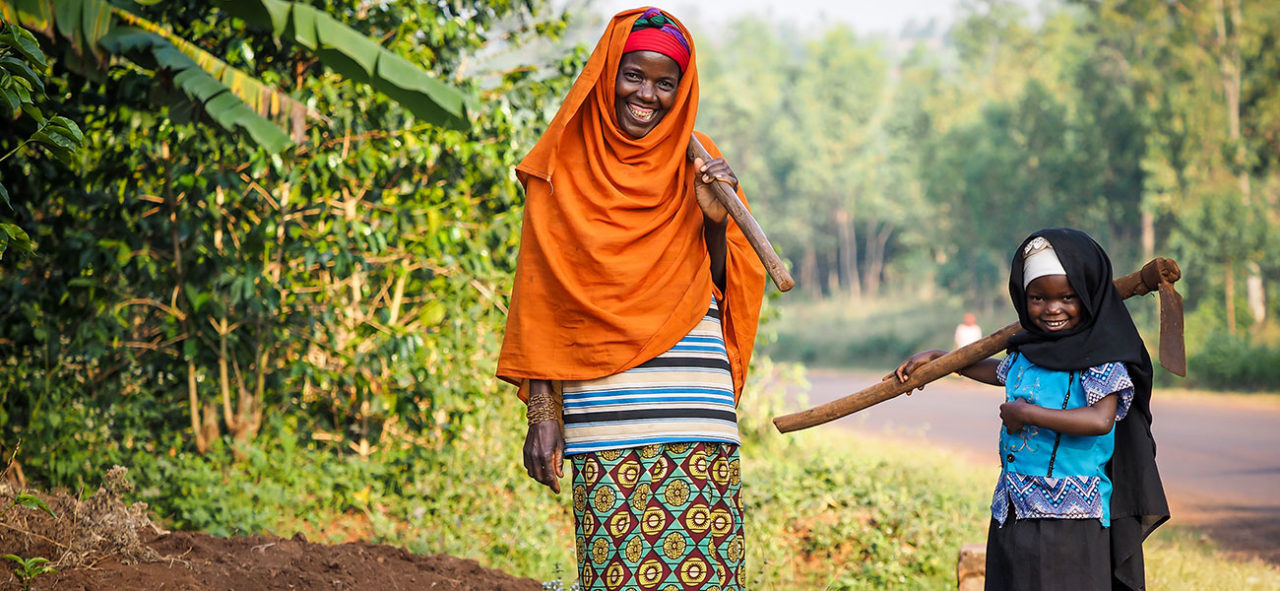
Parents dream for their children
Ramadhan hopes that he can obtain more land to support his family as well as improve the small mud-walled home they live in. But he is thankful for what he does have and proud that despite his country’s struggles, he and his family stayed.
“The thing I’m proud of is the good reputation I have with my wife, children, and the neighbors,” Ramadhan says. “When there are no problems in the household, this is something a man should be proud of.”
Like any mother, Zena is happiest when she sees that her children are healthy.
“I’m surrounded by children,” she says. “To see the life of my family, this is the most important thing that I take joy in.”
And from their humble home on Masasu Hill Zena and Ramadhan have high hopes for their children’s future.
“There are many things I have as dreams for my children,” Zena says. “I want one of my children to be a medical doctor or ambassador. … To see Chania succeeding in school, to study in-country, to go abroad. That would be a big gift.”
